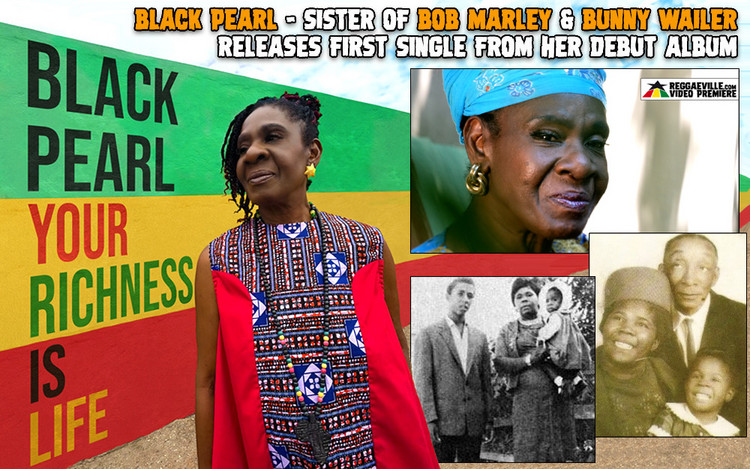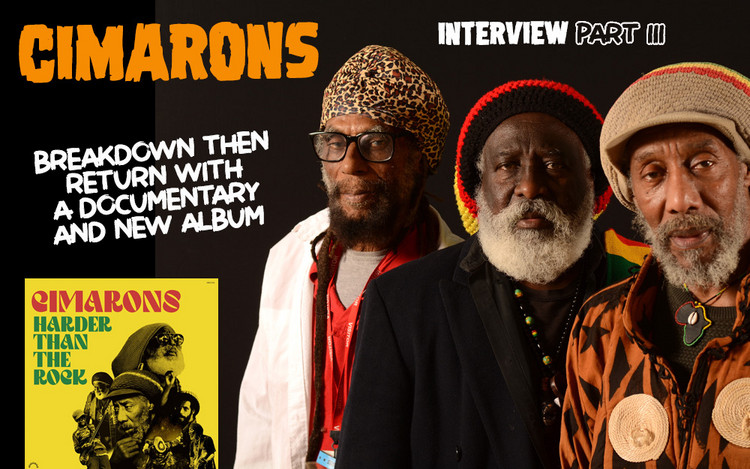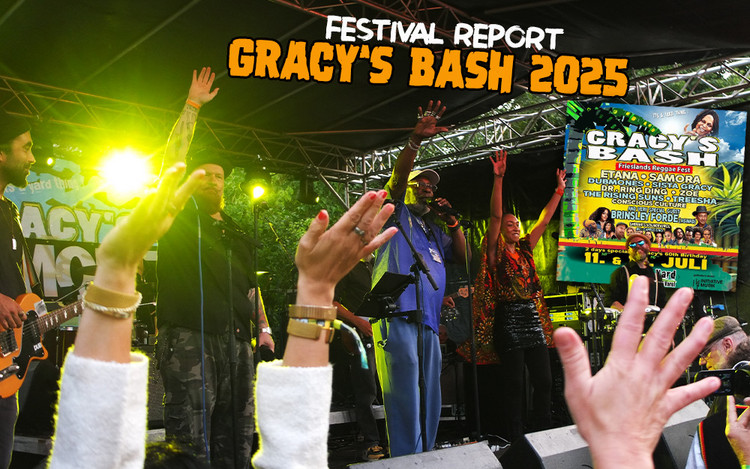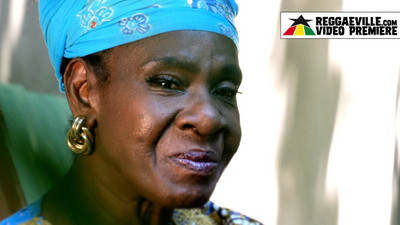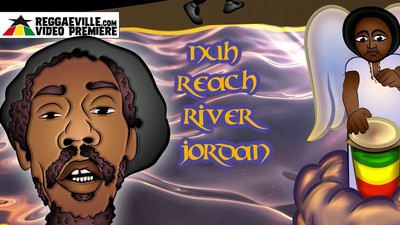Henry Matic ADD
Henry 'Matic' Tenyue Interview (Part I) - 60s to the 80s
12/15/2021 by Angus Taylor
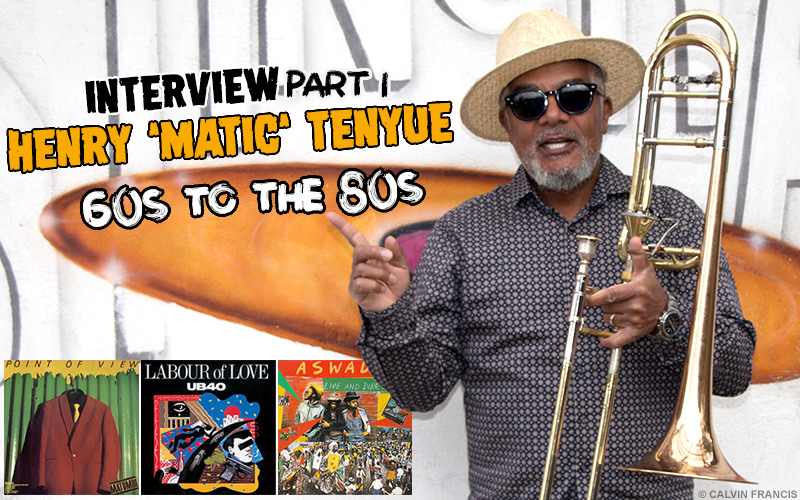
England has produced many experienced musicians of Jamaican heritage. Few have trod as many stages and studios as Henry “Matic” Tenyue.
A trombonist, multi-instrumentalist, singer, composer and producer, Tenyue’s four-decade career tallies with some of Jamaica’s most celebrated foundation players. Born in Kent and raised in South East London, he learned brass instruments in church organisations as a very small child. Alongside his trumpeter brother Patrick, and later as a soloist, he became one of reggae’s most recognisable hornsmen at concerts, festivals and recording sessions around the world.
He has been hired by UK legends Matumbi, UB40, Aswad and the Dennis Bovell Dub band. He’s been a fixture of the touring bands of Jamaican superstars including Dennis Brown, Gregory Isaacs, Delroy Wilson and Horace Andy. And, of course, he co-founded, performed and recorded with his own Matic 16 and Matic Horns groups. Inspired by Don Drummond, Vin Gordon and Rico Rodriguez, he has enhanced the legacy of the trombone as an instrument of modern roots reggae and dub.
Having sung backing vocals for years, Henry has recently stepped into the spotlight to become a lead vocalist. On 13th December 2021 he released Renditions, his first EP of vocal songs, via London’s award winning Stingray studios and Tuff Gong.
Angus Taylor spoke to Henry Matic Tenyue on the phone from his home near Hastings, on the East Sussex coast. The resulting two-part career interview could have been twice as long and still not mentioned everything. It tells the story of a humble yet talented musician, whose technique, sense of humour and inability to hold grudges mean he hasn’t stopped working since leaving school.
When and where were you born?
I was born in Beckenham, Kent. 8th of February 1959.
Did your parents meet in Jamaica and then come over?
Yes. My father came over first. I think around ’54. And then my mother came over in ’56. I have a brother and a sister who were born in Jamaica and then I've got four more who were born in England with me.
What did your parents do for a living in Jamaica and then in England?
My father is a carpenter. He did carpentry and French polishing and things like that. My mother was a housewife but after a while, when she came to England she got little jobs in factories or home working or whatever.
In which parish do your parents have their roots?
St. James. Up by Montego Bay, near Anchovy.
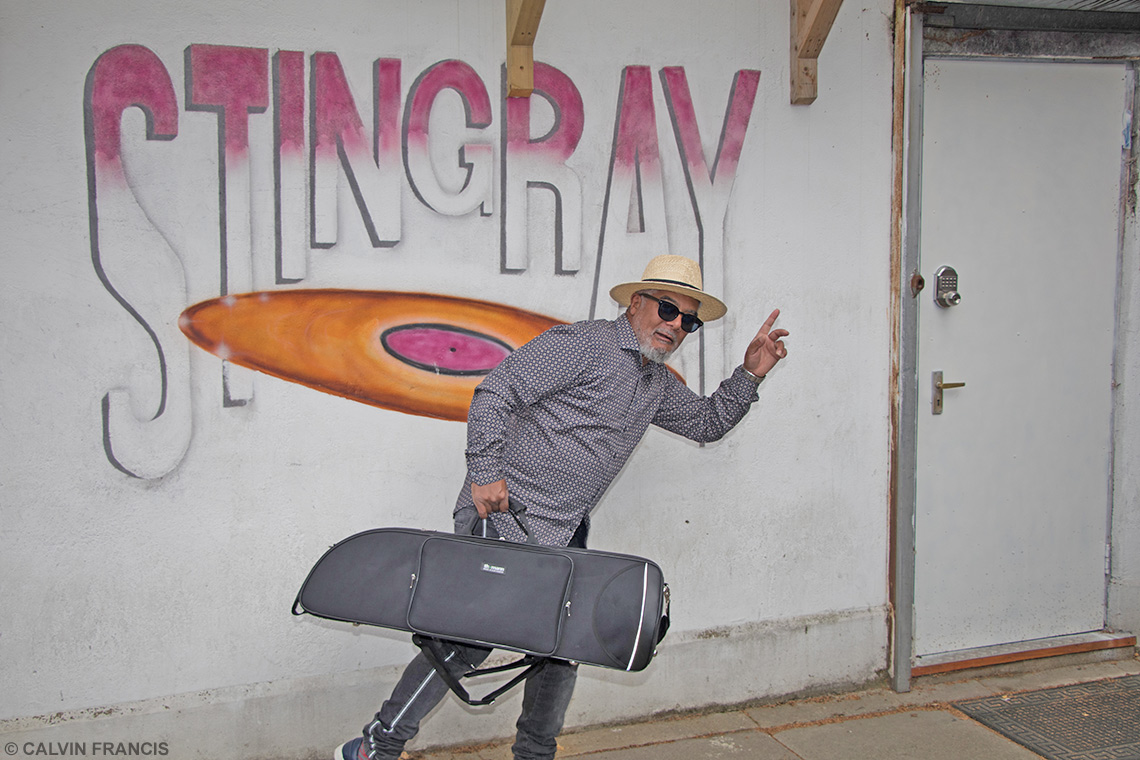
But there's also a Spanish Town connection?
The Spanish Town connection is when my grandmother moved from Mobay side to Spanish Town. That was after my mother left Jamaica. When I first went to Jamaica I saw my grandmother and some of my uncles and aunties. They were in Spanish Town. That's where the Spanish Town affinity comes in.
And your grandmother was musical?
Yeah, she played what they called a flutina. It's like a little accordion. She played it in the church. So she had that musical vibe in her. That's where my music comes from.
Growing up in England, how were you exposed to music?
It's from church actually. Because first we went to a Baptist church and then afterwards when I was a bit older, like 4 years old, we went to Salvation Army [in Penge]. That's how we started to learn about music.
Which instruments were you playing there?
I started off on a horn called the flugelhorn, then moved to cornet and then to a thing called the baritone and the euphonium. Afterwards I was playing the tuba. That wasn't for school but it was for a concert band called the Bromley Youth Concert Band. I also played for the Bromley Youth Orchestra but that was in my teenage years.
And you can read music?
Yeah. We learnt that in the Salvation Army, so I learnt that from about 6.
Which school did you go to?
I went to a secondary school named Kentwood School for Boys. It wasn't a musical school, it was more sport-orientated. At the time I thought me and my brother were the only musicians in the school. Because they found out I was a musician, sometimes I had to go to another school to play music and it just happened to be a girl's school. Of course they treated me nice there! (laughs) It was called Langley Park School for Girls.
Did anybody at your school go on to be part of the reggae music scene?
The great Gussie P. He was in the same year as me. There were a few others that did some things.
What about Blacker Dread, did he go to your school?
Yes, Blacker Dread used to go to the school. And then he left and went to Tulse Hill School.
How did you get interested in the trombone?
My father used to go to Jamaica and he would bring back these ska tunes like Skatalites and Don Drummond. And the trombone was the thing I always liked. Even when I was younger in the Salvation Army I was telling them I wanted to play trombone but they didn't want me to play. They wanted me to play things like the euphonium because they said I was good at that. But my love was the trombone. Sometimes I would get a trombone and I would try to learn the slide positions for myself. When I thought I was competent enough I tried to say “Yeah, I want to play trombone” but they still wouldn't let me! Even in the school orchestra they wouldn't let me. They said “Nobody can play tuba like you!”
So it's a bit like at the Alpha Boys School where Don Drummond and Rico Rodriguez had to fight to get a trombone. You had to fight to play the trombone too!
Yeah, that's right because they put Don Drummond on French horn when he started! And he didn't like it - he wanted to play trombone! And eventually he got to play trombone. But I don't know why they put Rico on trombone because Rico was a bad boy at school!
I heard from Tan Tan Thornton that Rico nearly set fire to the school!
Yeah, they used to treat Rico bad at school like punishment, locking in cupboards and all this.
But when you came out of school, despite doing all this music, you trained to be a draughtsman?
That was my academic thing, yeah. Trying to be a draughtsman. But even in the later years of school when I was 14 or 15 years old I was doing a sound system thing. We had our own little sound system, a sound we called Ben-Hur. It was actually my cousin's sound. He had a sound in North West London because he came from Paddington. He had the sound named Ben-Hur. But by that time the sound stopped and he left and went to Jamaica. We got one of the amplifiers and started our own Ben-Hur sound down in South London.
What were you doing on the sound?
I was like selector. One of my brothers was deejaying. In school with Gussie P, because Gussie liked to do recording, we got together with him and a brethren named Mark to make specials for the sound. So we would have our own specials and sometimes I would play on them, do a flute version or things like that. Patrick, my brother, would sing a tune or whatever. So we would have our own specials you know? Dubplates.
So while you were training to be a draughtsman, Patrick went to work in a garage. And this is how you made the link with Matumbi? Their bassist went to the garage and met Patrick?
Yeah, he took his car to the garage and they must have got talking. Patrick told them “Yeah, yeah my brother, we play horns”. We hadn't done it for maybe like a year or so. But it's like riding a bicycle. Once you get it you never forget it. So he said “OK”, he's going to book a session. But he told Jah Blake - Eaton Blake - that I played saxophone and trombone. Now the only time I played saxophone was on a school break. I saw a saxophone and picked it up and I taught myself how to play saxophone. So he told him that I play saxophone and trombone but I didn't have a trombone. They said they could get a trombone but I had to bring a saxophone. So I went to the music shop and bought a saxophone. Patrick said he played trumpet and he had one little old car and he sold it. He sold it and bought a trumpet for the next day so we could go to the session. It was a Matumbi session but they said it was a test session. This was 1977.
So you hit it off with Matumbi and you kept doing more sessions?
Yeah, yeah. The first tune we ever did a session on was a tune named Blue Beat And Ska. You know that tune? That was the first tune we ever did. Luckily it was just rhythm horns. But Dennis took a shine to us, you know? Because Dennis was doing most of the lovers rock tunes at that time, he started to bring us in on some of his lovers rock sessions. For Studio 16, Winston Edwards and those kinds of people. So that's how we got brought into the session business.
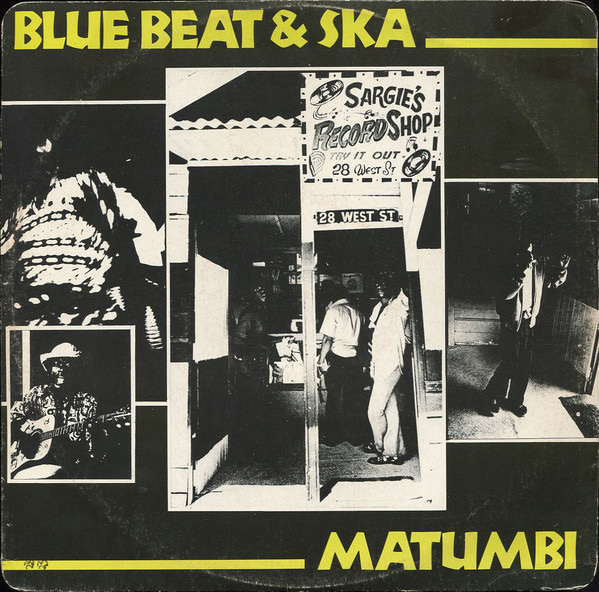
Do you remember any notable lovers rock tunes that you played on?
Well, back in the very early stages, I can't really seem to remember but there were lots of people like Marie-Pierre, early Janet Kay and even some sessions with Caroll Thompson. But that was not Dennis. That was more with a brother named Bertie Grant. We did that up at Easy Street. That was my first encounter with Easy Street. And Jackie Mittoo.
We went to those sessions and then there was a tour. Matumbi had just signed to EMI and they had just released an album called Seven Seals. I didn't play on that album but when they went to tour the album, that's when I started to play with them. That was the autumn-winter of 1977. My first tour. Then in early ’78 we went on a European tour. But at that time a brother named Peter Tosh had a tune out with Mick Jagger.
Walk And Don't Look Back.
Yeah, Walk And Don't Look Back. And because he was signed to Mick Jagger's label and Mick Jagger's label was affiliated with EMI I suppose they thought “Let's put the two bands together and do a European tour”. So we did a European tour with Peter Tosh. The Word Sound And Power band with Sly and Robbie.
So was that your first link with Sly and Robbie?
Yeah, so I was like in dreamland. Because those man had made some records. They were big and we shared a tour bus around Europe. So I'm there sitting with Sly and Robbie and Peter Tosh, playing cards with them. It was amazing. Robbie Lyn and all those men. Even the guy that sang Key To The World, Ruddy Thomas. Because Ruddy at that time was really a percussion player. He was playing percussion with them.
I just want to go back to the recording side of Matumbi. You recorded the Point Of View album?
Yeah, but even before Point Of View there was a series on TV called Empire Road. And I played on a video for that tune and things like that.
And the song Point Of View was a hit?
Point Of View came after we did those things like Empire Road. I was still working with Dennis doing lots of sessions up at Gooseberry Studio and I also was doing shows with all the different artists. Too many to mention but all of them in those days, Barry Biggs and those kinds of artists. Carroll Thompson, too many to mention. I was doing sessions up at Easy Street. That's where I get to meet the great Jackie Mittoo and people like that. And even Dennis Brown and Gregory, everybody. Errol Dunkley from before still. Sugar Minott, everybody.
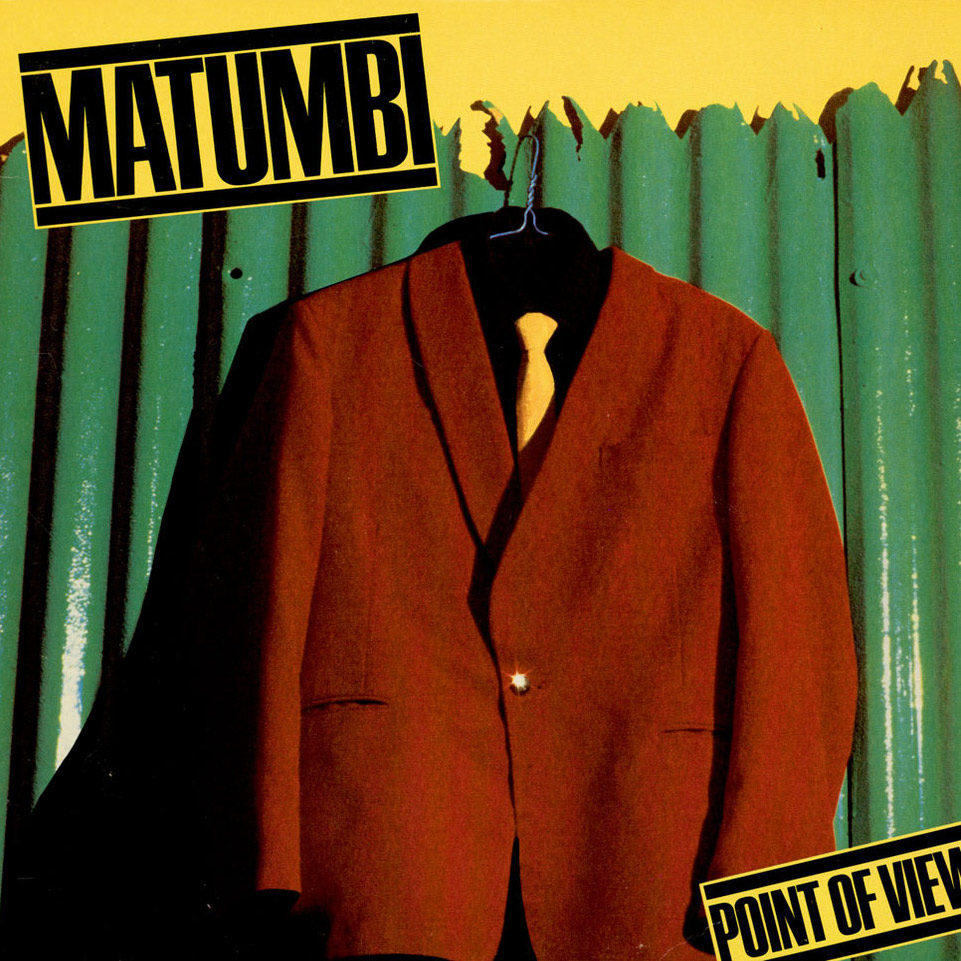
After we recorded the Matumbi album [at Ridge Farm studios], Dennis recorded that Slits album where they are naked with Ari Up. I was there at the photo shoot! So we did the Point Of View album at that time as well. When I was doing that I got to know Tony Phillips, Undivided Roots, and then I started working with them. So of course, a lot of shows. I worked with many lovers rock artists and then I started working with a lot of Jamaican artists. I started working with Aswad. I started working with King Sounds. Sons of Jah, all those kinds of North West London people. And after we did that album and we did that tune and it was a hit. A year before it actually got in the national charts, Point Of View was a hit in the reggae charts. On that tune I played saxophone and I played trombone.
And then you gave up your draughtsman training and decided to go fully into music?
At the same time that I was doing all of this, I was going to college. But all the music seemed to be hampering my work at college. Until the final nail in the coffin was when I was working as an apprentice draughtsman and then I went and did Top Of The Pops with Point Of View [watch it here]. And when I did Top Of The Pops and I went back to work, all the people, that's all they kept talking about you know? So I just thought “You know what? I'm going into this full-time now”. That's when I went into music in ’78.
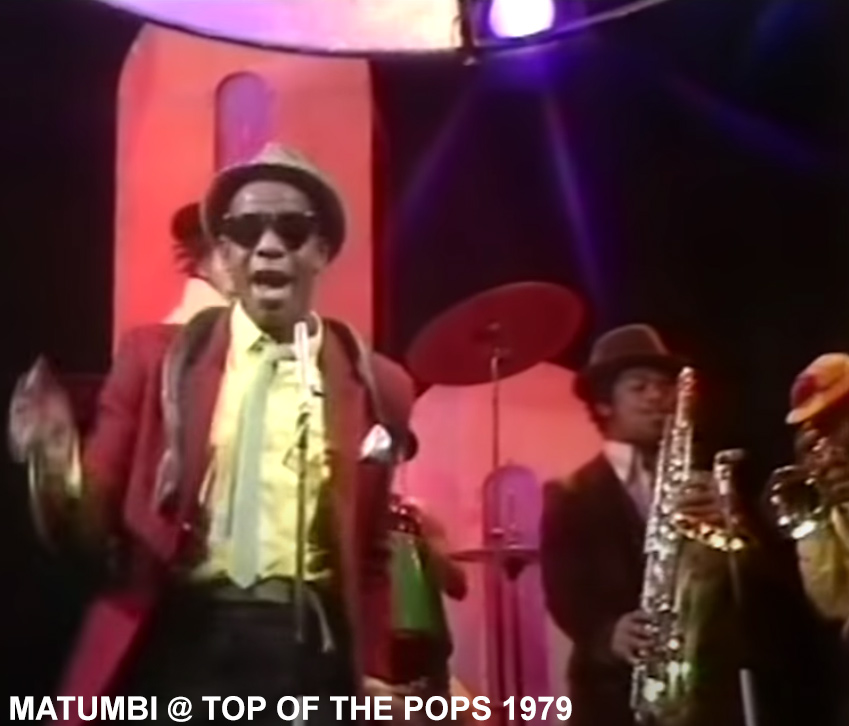
And you decided to concentrate on the trombone rather than the sax...
I was doing some sessions and I was ok. But when I was around people like Bammy Rose and Ray Carless I was thinking to myself “Yeah I can play alright but I'm not going to get into my comfort zone of playing how I really want to play with the saxophone.” I loved the trombone and I was there anyway so I just decided. But before I did things like when I played on most of the music in the score for Babylon. On most of the music I played saxophone and I played trombone. Beefy’s Tune and all those kinds of tunes. But for some reason they didn't credit any of the musicians on the film. If you look at the film it only says Dennis Bovell and it doesn't say the musicians who played on it like John Kpiaye and everybody. But on most of the music where you hear horns it was me. Not in the Johnny Clarke tune or the Michael Prophet but I'm talking about most of the incidental music. Babylon was a good film.
And you did an album in 1980 with I Roy as well?
Yeah Whap’n Bap’n. That was with Dennis.
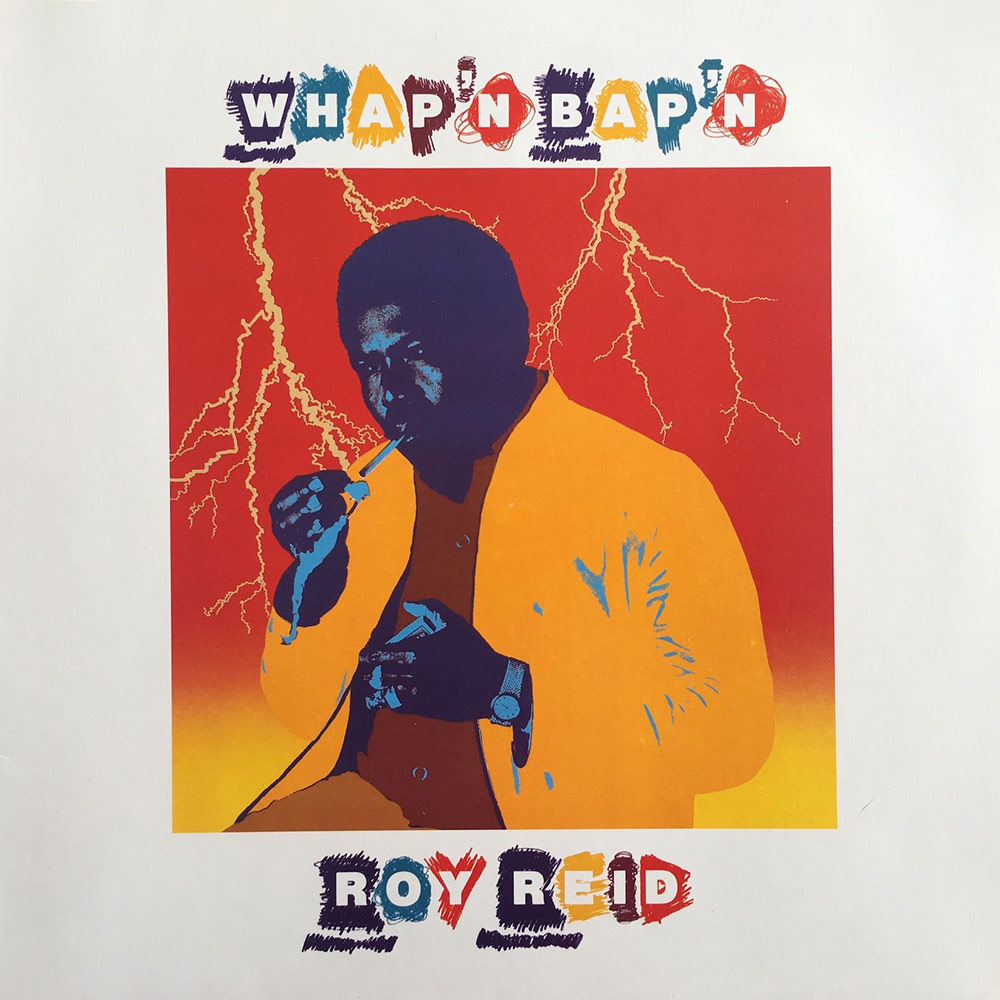
What would you say you learned from Dennis Bovell working with him in that period?
Well, I learnt how to be a session musician, you know? I saw how he operated and as well as that, working with other musicians. A lot of us were young in the business but we had all different kinds of musicians, man like Nick Straker, seeing how they operated and how you had to operate within a session. Even in those early days, because I did Top Of The Pops with Matumbi and then we were touring the Point Of View album too, I got dropped into some little things like doing Top Of The Pops with The Beat. Saxa was sick and they called me. I did saxophone on The Beat on Top Of The Pops. Hands Off She's Mine. [watch it here]
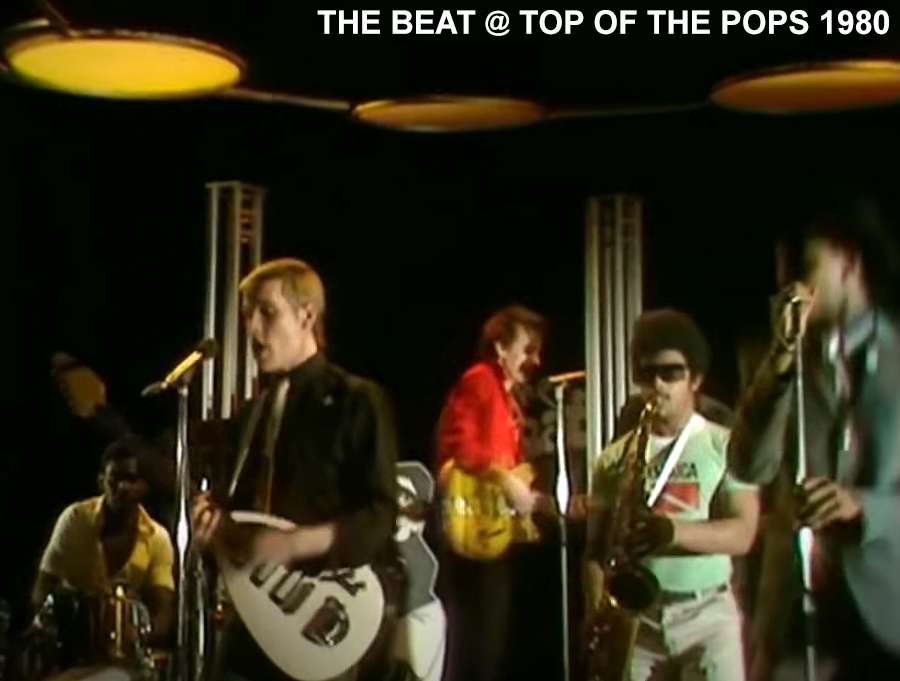
In this period of time did you get to interact with some of the great trombone players like Vin Gordon and Rico Rodriguez?
I did, yeah. Well, I think you know the story about Vin Gordon. One time I was rehearsing at a place named Red Cloud and they had two dressing rooms. I was rehearsing with a band with Dennis Brown and Vin Gordon was rehearsing with the band with Gregory Isaacs. So of course his band must have finished and come down and then Gordon saw me playing. In those times he didn't know me. And I think he just wanted to show off with me and he was going “Can you play this?” and I was telling him “No. I'm not in competition with you, Vin. I've respected you from long time. You're a big man to me, you know? I have the most respect for you. I'm not challenging you in any way.”
So of course everybody's gee-ing me up and saying “Come on play it!” because he's saying “Can you play this? Can you play this?” So Dennis and Gregory are saying “Come on, just play and show him that you can do it.” So I said “Ok” so I did it, you know? So then they said “Alright, you play something for him to play”. So I did this thing called triple tonguing on the trombone and they said “Vin, you play that now”. And Vin couldn't do it, you know? And they all started laughing at him trying to show up the youth! And from that me and Vin have become the best of friends. We are brethren until now.
What year was the encounter with Vin Gordon?
I don't know, maybe about 1980.
Can you also talk about your brother Wayne's band Out Of Darkness?
So just after we started with Matumbi, my brother liked to do music too so we formed a band Out Of Darkness. We just got some local Brixton musicians to come in. And in those times even Levi Roots was one of our singers, so we brought in Levi Roots. It was him, another brother named Sugar Dread and then we even had Alton Ellis come in...
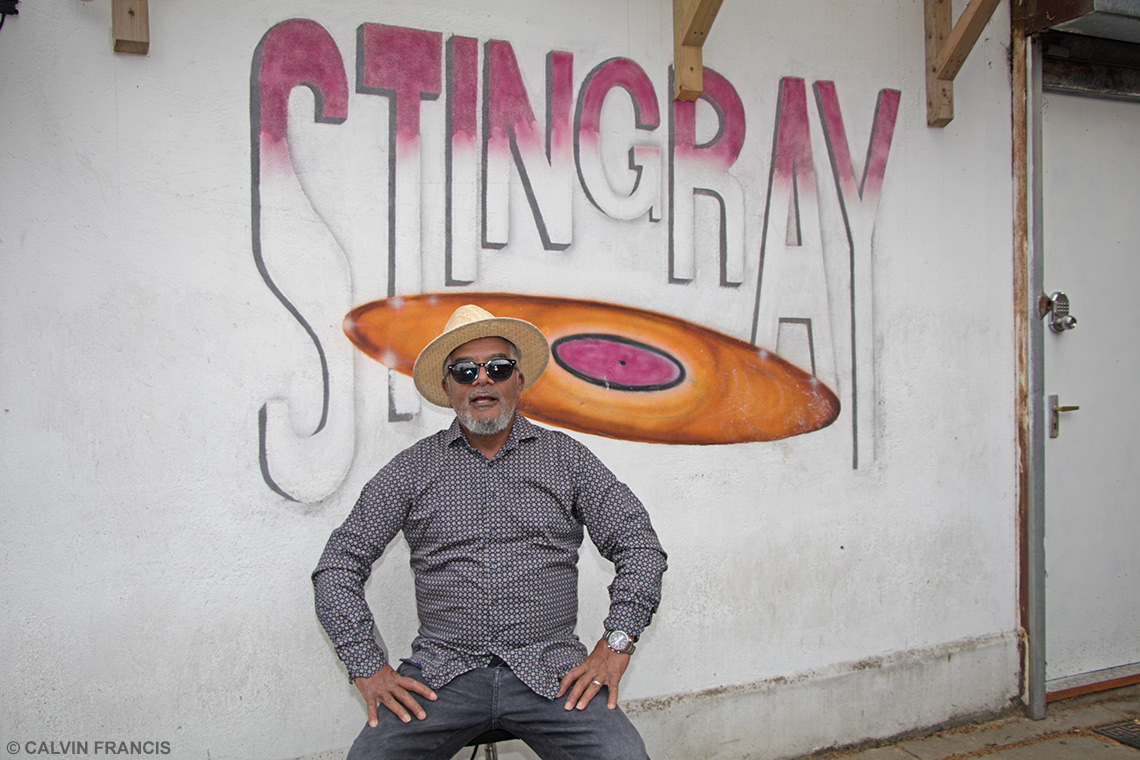
How did that happen?
In those times Alton was in Brixton for some reason. In Brixton in those times the Frontline was a community. Everybody used to move down there, you know? Frontline was the place. So if you hear music coming from somewhere you're going to wonder what's going there, and then just come in and say “Do you know that musician?” And Alton came in and Alton was the singer. He was one of the singers with my brother. With Sugar Dread and with Levi Roots. That went on and my brother even did some recordings at Genesis studio. Studio 80. He recorded some tunes like Murderous Times and You've Got No Money Girl (laughs) - that band was the start of... that band was pre Matic 16.
And how did it turn into Matic 16?
The band broke up for... reasons! (laughs) But I remember they had a day to celebrate Prince Charles, so in Brixton they put up some stages. They put up a stage and it was like a reggae festival. So we kind of put the band back together. Well it was actually Sugar Minott who got us to put the band back together. We got most of the people who were in my brother's band back in and we were backing Sugar. Then Levi Roots got a spot and Sugar Dread and we did that show. But when we did the part with Levi and Sugar Dread it came down good. And then we did the Sugar Minott, everything was great, but then we decided. We said “No, let's keep this band together”. We got together and had a meeting and we came up with the name Matic 16.
Where did that name come from?
It just came from my living room (laughs) I don't know. I don't know if it was a gun thing or if it was a Salvation Army thing. Because in the Salvation Army you're called soldiers like Onward Christian Soldiers. You walk with weapon, you know what I mean? So we called it Matic 16 but it wasn't really because of guns. And then our first show that we did as Matic 16 was for the New Cross Fire. It was all different bands, three reggae bands and three punk bands. We were one of the bands, Steel Pulse, King Sounds I remember and then it was three other bands.
Was Levi Roots a deejay before he turned singer?
Yeah, he was a deejay on Coxsone sound. And then Lloydie put out a tune with him on the rhythm, Voice Of The Poor. He deejayed a cut on that Fred Locks tune. He deejayed on that and he got a little sounding off it. But he was with us, Matic 16 and we did like two, three, four shows but the little four shows that we did, people wanted to hear us. But the reason why the band never really went on too far is mainly because of me and my brother's commitments, doing tours and a whole heap of shows for other people. We were doing shows with Dennis Brown. We would go to Africa with Dennis Brown and all those things there, Gregory, everybody. At the time we were fully into the session thing.
But that tune that you did in Matic 16, Jahovah you still hear that tune played by every roots sound today.
Yeah, yeah. It turned into a classic, you know what I mean? And Jazzie B tells us he always plays it. That's a classic for Soul II Soul sound. That was on a label called Music Hive for Jimmy Lindsay. He had a record shop in West Norwood. We did it for his label. But because of commitments as I said, touring with Aswad, this band, that band, the other band shows, that was a busy time you know?
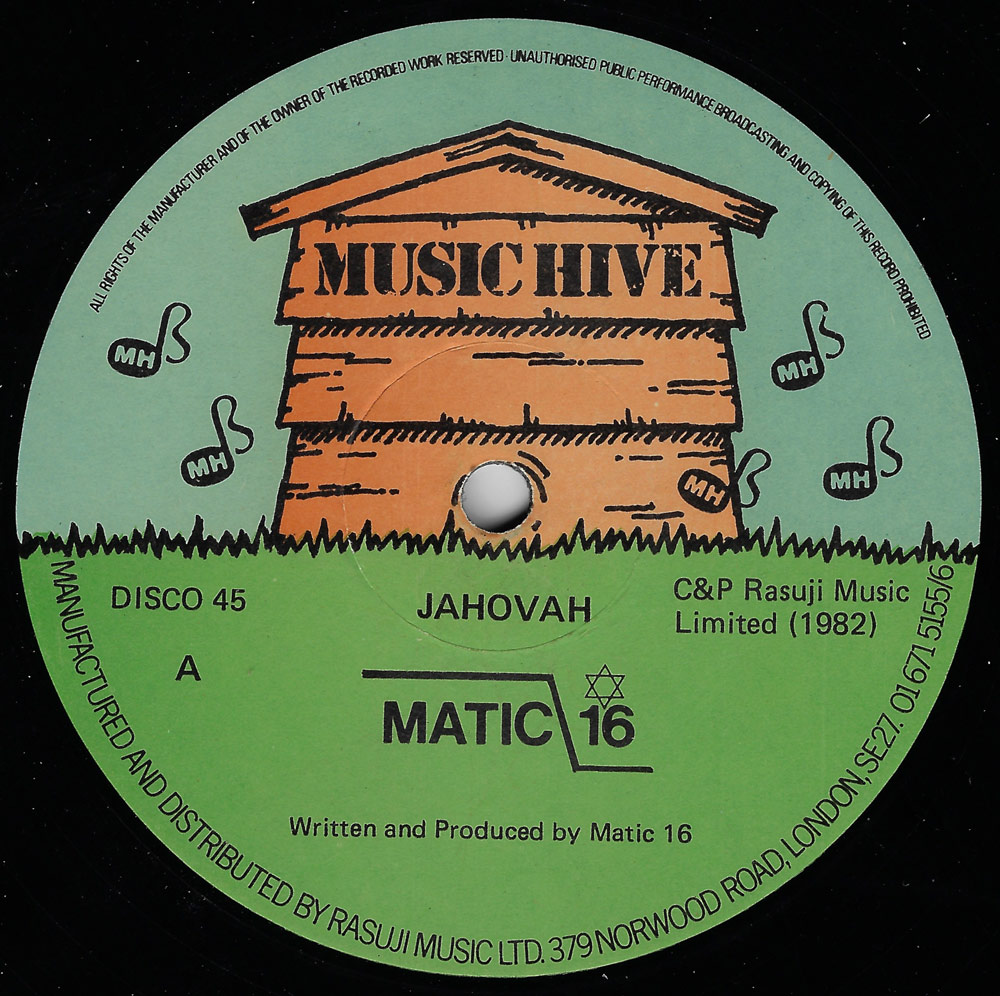
You did quite a lot of work with Aswad.
Yes, I did a few albums and we also played on the infamous Live And Direct. It's a classic album. They say it's the number one live album even before Bob Marley's Live At The Lyceum. They've got the Aswad one and then they've got Bob Marley. Although the Lyceum sold more! But it's the most classic one and everybody talks about it all around the world.
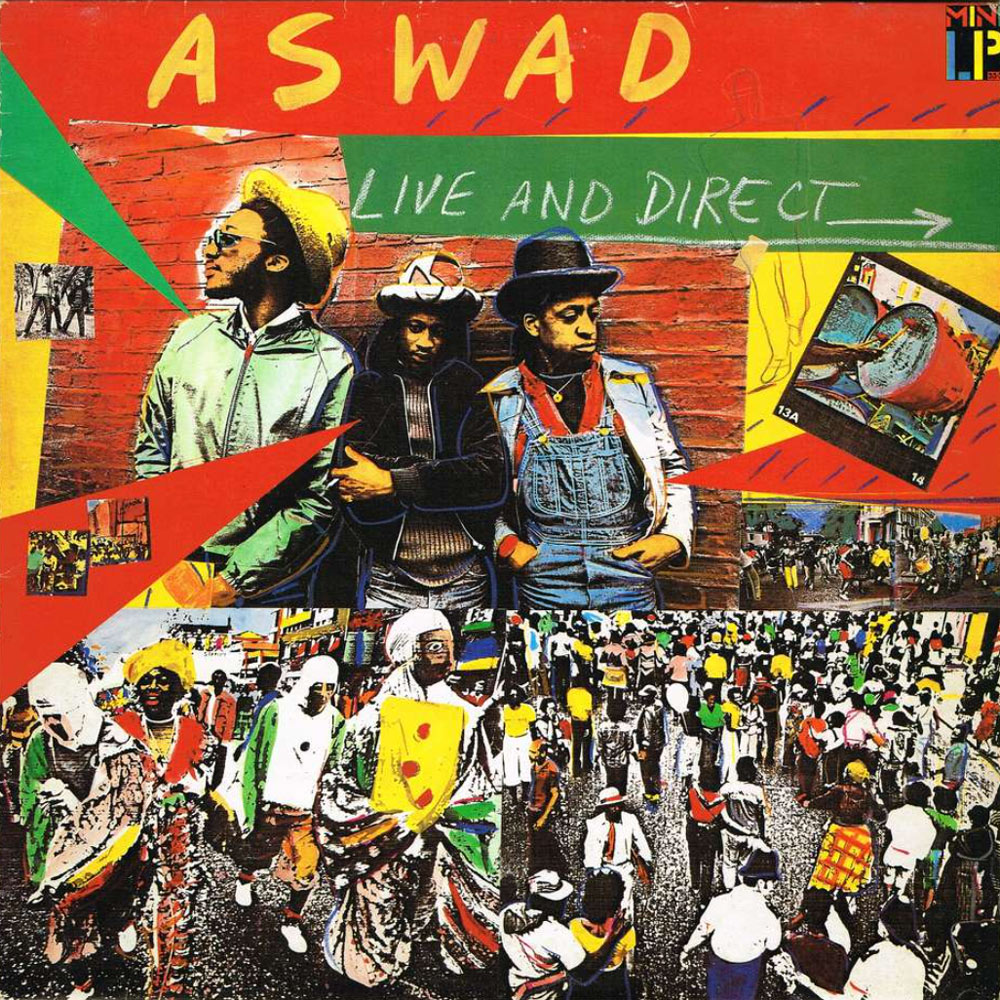
And also through Dennis you ended up doing several Linton Kwesi Johnson albums as well...
Right right, yeah the Dub Band now it came a little further down. Dennis just created this band and said “Yeah, we're going to go on the road”. And that band is the very first band in the world that had the name Dub in it. No other band had done it other than the Dub Band.
It was made up of good musicians. You had to be good because sometimes we would be on stage doing a show and Dennis would look at you and say “Make up a tune!” And you had to make up a tune! Any one of us. And then everybody else had to join in and make the tune. We've got some tunes that were Dub Band tunes and that's how they got formed. That's how good the musicians were, no other band have I ever done that with. I don't know any of the bands that have done that.
And also you played on the Michael Smith album?
Mi Cyaan Believe It. And Jean Breeze and a lot of the poets. But in those times a lot of the poets were from Linton Kwesi Johnson because everybody knew him. And that's how they came in and that's how we got them, through Dennis producing. So of course he's calling me and my brother to do that.
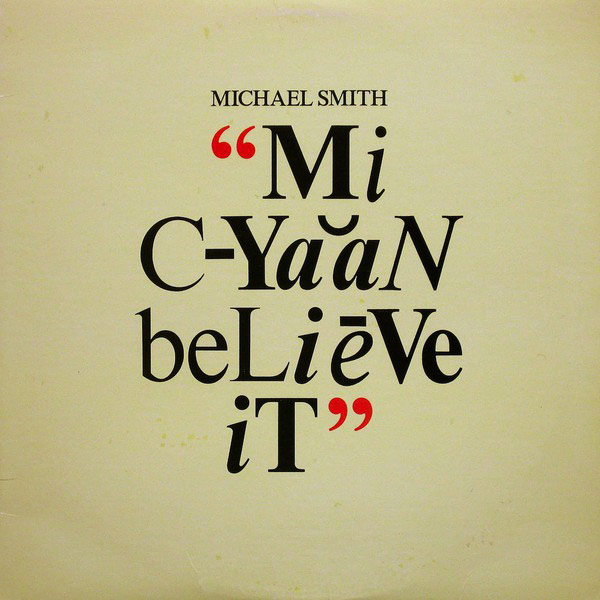
Did you interact much with the poets and vocalists in these times or did you just come in and do your horns afterwards?
No, it was like brethren because we would always see them at Brixton. With Linton, with Jean we always used to interact.
Because Michael Smith was quite an interesting character...
Yeah, you have to sit down and listen to them man there. Because in those times I'm a little youth, you know? So you can't get in a big people business (laughs). You take it from them and they're telling you about Jamaica, whatever. But usually it was something on political terms. They were political animals.
What was the difference between working with Aswad and working with Linton Kwesi Johnson or working with I Roy? What are your memories of the differences between how different sessions and tours would run?
The difference is that when I was working with people like Aswad and King Sounds and certain other East London bands and artists, especially the Rasta artists, it was more of a spiritual thing. Because a lot of these man them belong to Twelve Tribes, you know? Dennis Brown most of the rest at that time were Twelve Tribes. You go on stage and they do their blessing “Greetings in the name of…” in a Twelve Tribes style. You would have your fun same way but they have their spiritual time.
Before you go on stage you do your blessings and all this and that, you know? They would have a prayer. It was kind of like religious. And other people used to just gather and say ”Yeah, let's go” and boom! You know, like a football team? But with the Rasta was more like a spiritual thing. Some of them, before we went on stage we would bless the place with a chalice. It was a more spiritual thing with them than working with like Linton Kwesi Johnson and I Roy. They were more just regular but nice.
What happened to Matumbi? Did it come to an end at a certain point?
With Matumbi it just fizzled out. I don't know if it was problems in the band because you remember I was just a hired player in Matumbi. But even after he finished I carried on working with Dennis and I carried on working with Bevin Fagan, the singer. Him and Euton Jones started a label called Guardian Angel. They put out a tune called China Gate that I played saxophone on. I think it went to number one in the reggae charts.
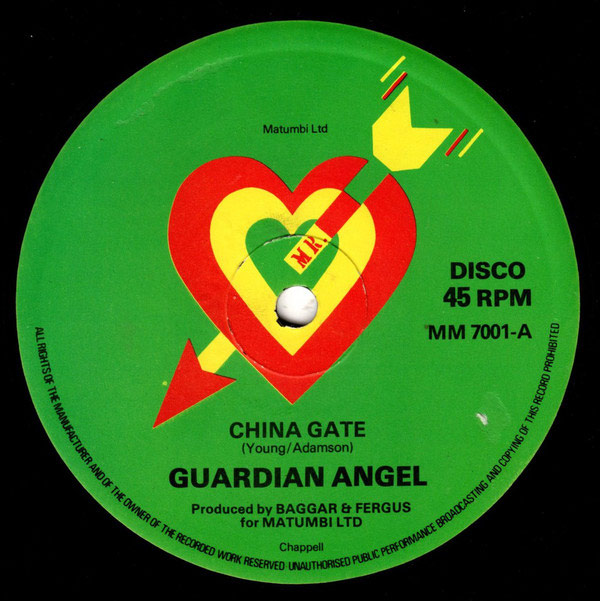
I played on many number ones in the reggae charts, so yeah I did a few things with them. And then I was also working with Eaton Blake and Webster Johnson AKA Webby Jay. We put a little thing together called Riot Squad. And the few tunes that we had out with Riot Squad became hits as well. They were number ones. And then I was carrying on working with Dennis of course, and he was just having hits all over the place.
And did the Aswad work stop or did it just carry on ad hoc through those times?
Yeah, because I was working with Aswad and I was working with other bands like Ruff Cutt - well at that time it was Undivided Roots - I was doing a lot, so it had to turn into a first-come-first-served thing, you know? I was on tours and tours and it just kept going! With all kinds of artists: Al Campbell, Pat Kelly, Delroy Wilson. Me and Delroy got on well together because I like to drink brandy, you know? When he wanted brandy he used to come and look for me (laughs). But I couldn't keep up with those man there. I think that's what killed him. And Jackie.
How did you come to join UB40?
Well, that is another story (laughs). Because I was doing sessions up at Easy Street with a lot of people like Knowledge, Sugar Minott and a whole heap of people. Some things for Jackie Mittoo’s album. I got to work with this artist called Winston Reedy. He was produced by Bertie Grant. And I think the first tune we did was Daughter of Zion. And of course that became a hit. And so we did some other tunes after that and then all these were hits. To tell you the truth, Winston Reedy was the first artist I worked with where, like pop stars when you're going to the gigs and the crowds are outside and the girls are screaming? He was the first one before Maxi Priest. Maxi Priest was the second one but he was the first one. With girls screaming and everything! You'd go to the gig and the gig would be packed inside and be just as packed outside, for a reggae man. I thought “Wow”!
So Winston got a deal with UB40 on their Debt label, they were doing a tour and they put Winston on as the support. So we were playing with Winston Reedy but they saw that and they liked the gigs. Brian Travers invited us to do a tune with them. So we said “Yeah, of course!” They were almost big then. So we did a tune with them and then the next night they wanted us to do two tunes! So we said to them “Yeah, we’ll do two tunes for you but you have to make Winston come on with one because we're working with Winston”. So we had to show loyalty. So they said “Ok” and they brought Winston on for one tune with us but then we still had to play the other two tunes. But at the end of that tour, which was like a British tour, they said they were going to America and they said they wanted us to be in the band. Me and my brother. So we said “Ok”. So that's how we got to be with them. I think that was ’84.
And when did you start recording with them?
I think it was about ’85-’86. It was when we came back from America. Because when we went on that tour to America, we were touring all the universities in every state. That is when Red Red Wine got big in America. It got to number one while we were on tour. And then they came back and that's when they built their studio and we were recording in there. Then we did Labour Of Love, Labour Of Love 2 and we did Baggariddim and a few other things.
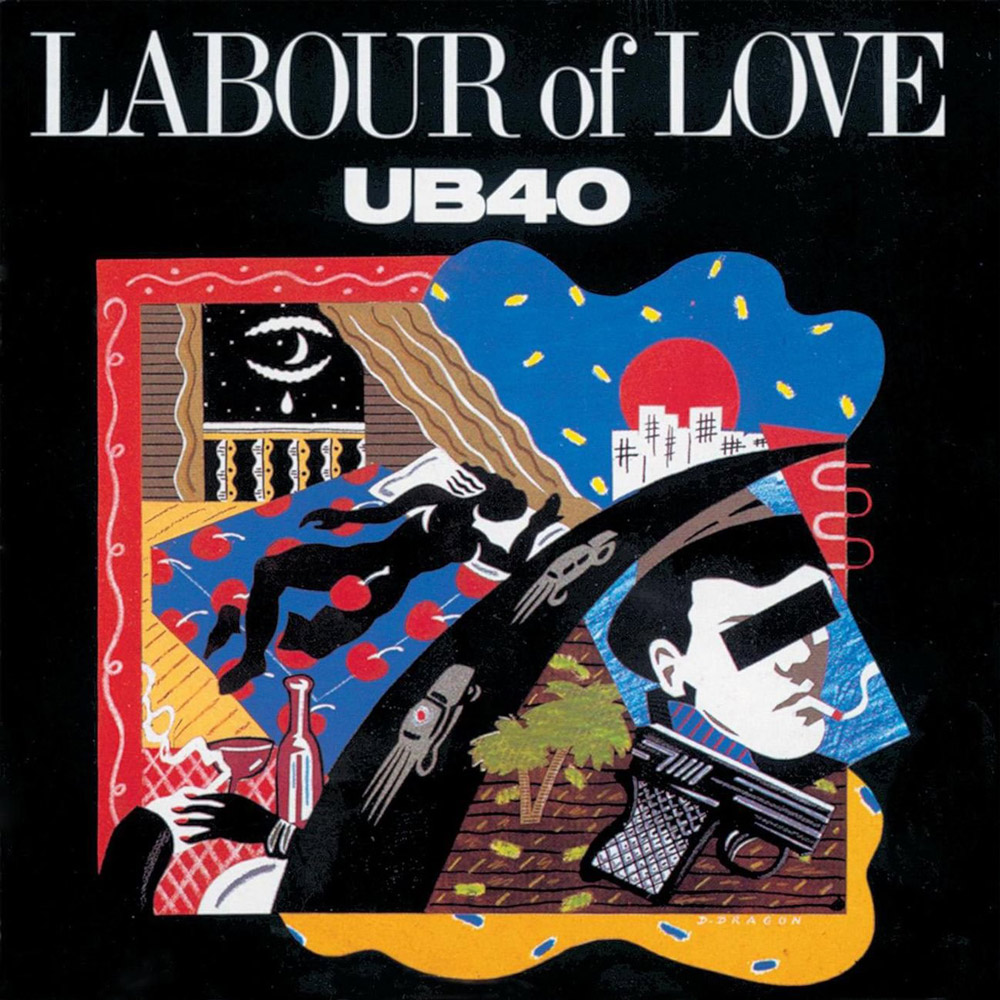
But when we were on that first tour and we were on the tour bus we got talking and they told us [how in the past] they were looking for a horn section. And the bass player said he went to a gig in Brixton Town Hall and he saw this band with these horn players. There were three of us and he went back and told the band “We've got to find these guys”. And that was their bass player at a Matic 16 gig. But they couldn't find a way to contact us. So they actually wanted us from before. They didn't know how to get hold of us. And then realising “Here we are”. That's how things go around.
Read Part 2 of this interview here where Matic Tenyue shares his memories of Astro and Brian from UB40 and how he became a successful solo musician in the 21st century...




